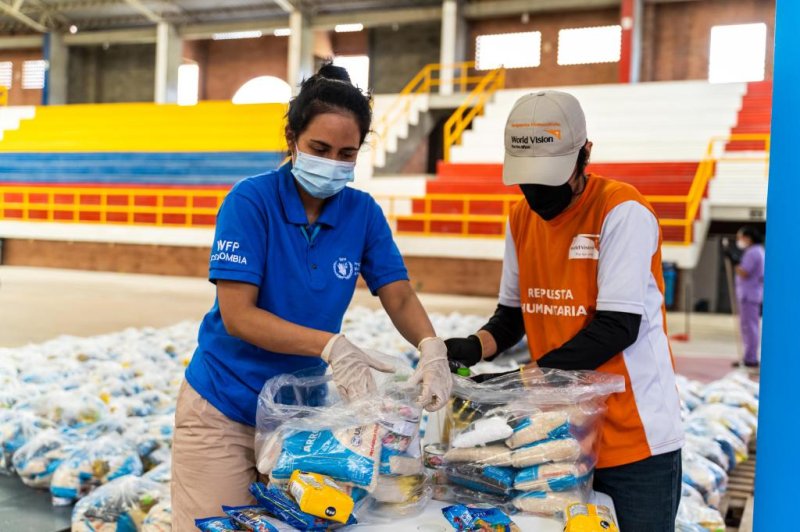
The U.N. World Food Programme is urging countries to do more to help those in Latin American countries facing severe food insecurity. Photo courtesy of World Food Programme
May 28 (UPI) -- The U.N. World Food Programme warned that some 14 million people in Latin America could go hungry this year due to the coronavirus pandemic.
The figures released late Wednesday for 11 countries in the region including the Caribbean suggest a substantial increase of some 10 million people suffering from severe food insecurity this year compared to the 3.4 million facing the same conductions last year.
Miguel Barreto, WFP regional director for Latin America and the Caribbean, said assistance is needed to prevent the "COVID-19 pandemic from becoming a hunger pandemic."
"It is vital and urgent that we provide food assistance to the growing number of vulnerable people in the region, as well as those who depend on informal work," he said.
The forecast is calculated based on the comparison between food insecurity in 2019 for the region and analysis of economic indicators after the COVID-19 pandemic began -- and the analysis for 2020 is not encouraging, the WFP said.
According to statistics from the Economic Commission for Latin America and the Caribbean, the region is expected to experience a contraction of 5.3 percent in 2020, which is forecast to further exasperate the already precarious financial position of millions of people with limited access to food.
On Tuesday, the Pan American Health Organization said the Americas had surpassed Europe to become the epicenter of the pandemic, showing particular concern over Latin countries, many of which have seen growing numbers of new cases.
Brazil has recently leaped into second in the world in terms of infections with 414,661 cases and recorded 22,301 cases on Wednesday, the most of any country during the 24-hour period, according to data compiled by worldometers.info.
The WFP is urging countries to provide additional support to those in need and to expand their coverage to migrants and people without formal employment.
"Working together, we can minimize the risk of food insecurity and protect the most vulnerable countries and communities from the potentially devastating effects of the pandemic," Barreto said.
No comments:
Post a Comment